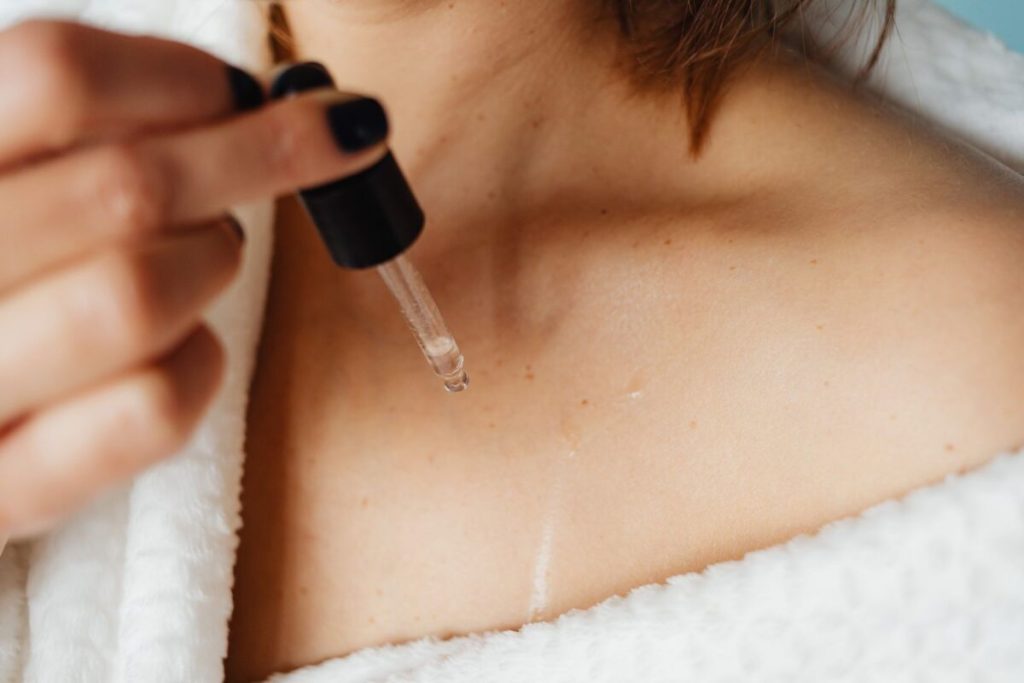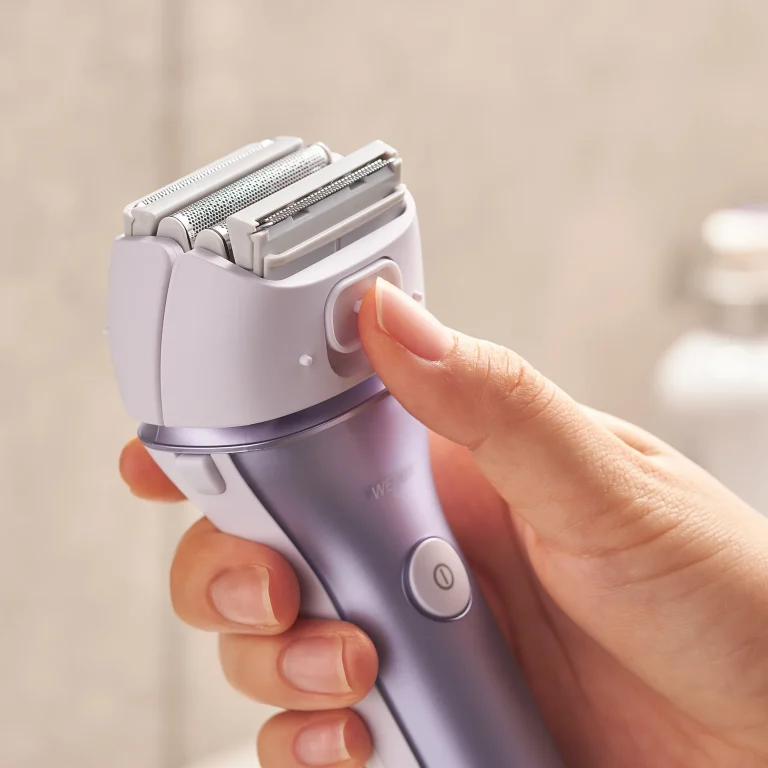Does Jojoba Oil Clog Pores? A Skincare Expert’s Advice
Jojoba oil has become a popular ingredient in many skincare and beauty products. As someone with acne-prone and sensitive skin, I’m always careful about the products I use on my face. I want to avoid anything that could clog my pores and cause breakouts. So when I first heard about jojoba oil, I had to do some research to find out: does jojoba oil clog pores?
What Is Jojoba Oil?
Contents
To understand if jojoba can clog pores, it helps to first know what it is and where it comes from. Jojoba oil comes from the seeds of the jojoba plant, which is native to northern Mexico and the southwestern United States. The oil is actually a liquid wax ester, not a true vegetable oil. This wax ester is very similar to the natural sebum our skin produces.
Jojoba oil contains many beneficial ingredients, including:
- Vitamins B, E, D, and A – These provide antioxidant and anti-aging benefits.
- Minerals like zinc and copper – These can reduce inflammation.
- Omega 3, 6, and 9 fatty acids – These moisturize and nourish skin.
- Proteins – These help repair skin cells.
- Quercetin – This natural antioxidant fights damage from free radicals.
With this impressive nutrient profile, it’s no wonder jojoba has become so popular for skincare and cosmetics. But can it clog pores? Let’s look at the evidence.
The Benefits Of Jojoba Oil For The Skin
Studies have shown that jojoba oil has many dermatological benefits when applied to the skin. Here are some of its top advantages:
Balancing Oil Production
Jojoba is unique in that it resembles the natural sebum produced by our skin. This allows it to help balance oil production. If too much sebum is produced, jojoba can dissolve it. This prevents the pores from becoming clogged.
It also means jojoba can help normalize oily and dry areas. This sebum-regulating effect can reduce acne breakouts, blackheads, and clogged pores.
Anti-Inflammatory Properties
The vitamins and minerals in jojoba oil provide anti-inflammatory benefits. This helps calm redness, swelling, and irritation. It also enables jojoba to soothe and accelerate healing of the skin.
Healing And Protecting
In addition to vitamins E, B, and D, jojoba contains vitamin A and vitamin E derivatives. These antioxidants help fight free radicals and environmental damage. This gives jojoba the ability to treat issues like minor cuts, burns, and skin infections.
Jojoba also has antibacterial and antifungal properties. This offers additional protection and healing benefits.
Moisturizing Properties
Unlike some oils, jojoba is able to penetrate deeply into the skin. This provides lasting hydration instead of just a surface-level effect.
Jojoba also creates a protective barrier on the skin. This nourishes, protects, and improves elasticity. With regular use, jojoba can minimize fine lines and wrinkles.
Anti-Aging Properties
In addition to hydrating and protecting the skin, jojoba has been shown to reduce wrinkles. It also helps protect against environmental stressors that accelerate aging.
So with all these beneficial properties, what are the potential downsides of using jojoba oil on the skin?
What Are The Side Effects Of Jojoba Oil?
For most people, topical application of jojoba oil is completely safe. However, there are a few potential side effects to be aware of:
Allergic Reactions
There is a small chance of experiencing an allergic reaction to jojoba oil. This could result in itching, redness, swelling, or hives. However, allergies are quite rare since jojoba oil is hypoallergenic.
Acne Breakouts
While jojoba is considered non-comedogenic (doesn’t clog pores), some individuals may experience breakouts from using the oil. Those with extremely acne-prone skin should patch test jojoba first.
However, most research shows jojoba does NOT exacerbate acne. In fact, it often improves breakouts by controlling sebum production.
Sun Sensitivity
Like some carrier oils, jojoba does not contain SPF. It’s important to apply a sunscreen underneath or avoid sun exposure when using jojoba.
Greasiness
If too much is applied, jojoba can leave an oily or greasy residue. Using only a few drops at a time can prevent this. Jojoba absorbs quickly, so this effect is temporary.
Now that we’ve covered the benefits and potential side effects, how should jojoba oil be used properly on the skin?

How To Use Jojoba Oil On The Face
Using jojoba oil on the face is simple. Follow these tips:
Cleansing
It’s important to start with a clean face free of makeup, dirt, and impurities. Use a gentle cleanser and lukewarm water.
Application
Dispense a few drops of jojoba into your palm and rub your hands together to warm it up. Then, use gentle circular motions to massage into the face.
Focus On Problem Areas
Apply extra oil to dry patches, wrinkle-prone areas, or spots that need extra moisture. These include the eyes, mouth, and forehead.
Absorption
Allow the jojoba oil to fully absorb into the skin before applying other products. It should absorb within 10 minutes.
Day vs Night Usage
Jojoba oil can be used as part of your morning or evening routine. For day, apply a few drops before sunscreen and makeup. At night, massage in after cleansing and before heavier creams.
You can also use jojoba oil for removing makeup, as a massage oil, or as a hair treatment.
Now that you know how to use it, how long does jojoba oil stay fresh?
Does Jojoba Oil Expire?
One of the benefits of jojoba oil is its long shelf life. It is very stable compared to many botanical oils.
Unopened jojoba oil can last 2-4 years past its printed expiration date. Once opened, it will stay fresh for 1-2 years if stored properly.
To maximize shelf life:
- Store jojoba oil in a cool, dark place
- Keep the bottle tightly sealed
- Avoid exposure to sunlight and humidity
Check for signs of spoilage like changes in color, scent, or texture. As long as it looks, smells, and feels the same, jojoba oil is likely still safe to use.
Now that we’ve covered all the key considerations, what’s the final verdict?
Conclusion: Does Jojoba Oil Clog Pores?
After researching the unique composition and benefits of jojoba oil, I can confidently conclude that no, jojoba oil does not clog pores.
In fact, jojoba is considered one of the best oils to use on acne-prone and congested skin. It helps regulate sebum production and has anti-inflammatory properties. Most studies find jojoba improves acne breakouts rather than exacerbating them.
Of course, everyone’s skin is different. I recommend patch testing first, especially if your skin is highly sensitive or reactive. But jojoba oil is very well tolerated by most skin types.
With its exceptional nutrient profile and sebum-balancing effects, jojoba oil is an excellent addition to a skincare routine for healthy, glowy skin. Use its many benefits without fear of clogged pores or breakouts. My skin care questions about jojoba oil have been fully answered!
Frequently Asked Questions
Q: Can jojoba oil remove blackheads?
A: Yes, jojoba oil can help dissolve and remove blackheads over time. The oil’s similarity to sebum allows it to break down blackheads and normalize oil production.
Q: Should jojoba oil be avoided around the eyes?
A: No, jojoba oil is gentle enough to use around the delicate eye area. Apply lightly and avoid getting into the eyes. It can help moisturize and reduce fine lines and wrinkles around the eyes.
Q: Does jojoba oil make oily skin worse?
A: Jojoba oil does not make oily skin worse. In fact, it helps regulate excess sebum production to prevent an oily complexion and clogged pores. It brings balance to the skin.
Q: Can I use jojoba oil with retinol or benzoyl peroxide?
A: Yes, you can safely use jojoba oil with most skincare ingredients, including retinol and benzoyl peroxide. Jojoba is unlikely to cause any negative interactions.
Q: Does jojoba oil need to be washed off?
A: No, jojoba oil does not need to be rinsed off. It absorbs fully into the skin without leaving a greasy residue. You can splash your face with water in the morning if any excess remains.
I hope this comprehensive guide answered all your questions about jojoba oil and clogged pores! Let me know if you have any other skincare ingredients you’re curious about.

Founded by Sophia Rodriguez, IGXO Cosmetics is a PETA-certified, cruelty-free, and vegan makeup brand.





